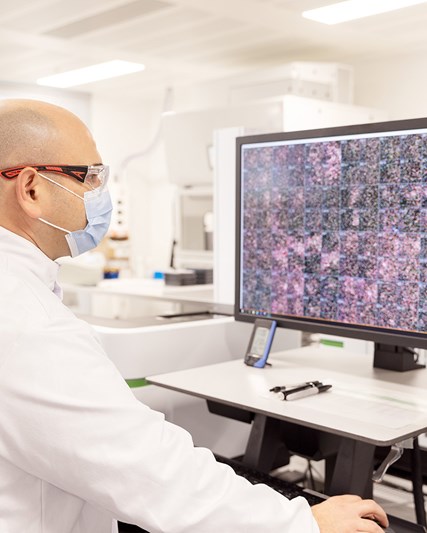What is a clinical study?
Clinical studies, sometimes called clinical trials, look at new ways to prevent, diagnose, and treat diseases. We conduct clinical studies to determine whether a new vaccine or medicine work and are safe for people. The FDA (Food and Drug Administration) must approve clinical studies before they can start, and, based on the clinical study data, the FDA must approve medicines and vaccines before they become available to the public.
What is GSK’s approach to clinical studies?
GSK unites science, technology and talent to get ahead of disease together. This purpose guides everything we do. For clinical studies, we:
- Take part in discussions on research practices
- Work with academic scientists, government, and others to ensure safety for patients
- Release the results of all our clinical studies
What should I expect in a GSK clinical study?
In our clinical studies, you will work with doctors, nurses, and coordinators. They will all guide you, support you, listen, and share information. They will be clear about how the process works and how much of your time is required. They will also check in with you regularly to ask questions and see how you are doing.
We believe safety comes first. The government strictly monitors and regulates all clinical studies. GSK also has its own Global Safety Board that oversees our clinical studies.
Those who take part in clinical studies must voluntarily confirm they are willing to participate, after being informed about the study and its benefits and risks. Your healthcare provider will explain the following to you:
- Clinical study’s purpose; treatment procedures; length of study; person to contact for further information about the study
- Any new information discovered about the study medicine/vaccine during the clinical study
- Potential benefits and risks
- Alternatives to study participation including available treatments and their potential benefits and risks
- How confidentiality is maintained and who will have access to the records for verification of the clinical study procedures and data
- Participants’ rights – including the right to not participate or end participation at any time
At GSK, we are ambitious for patients to deliver what matters better and faster. Together, we can make big impact on patients who could benefit from the medicine or vaccine we are studying.
How can I find a clinical study?
First, talk to your healthcare provider. He or she may know about clinical studies in your area. Your healthcare provider can tell you about clinical studies that may be right you.
Representative clinical trials
Diseases and medicines can affect people differently depending on their ethnicity, sex, race and age so we need to make sure that our clinical trials include those affected by the disease under study. This supports our business performance by providing healthcare providers and the individuals who are prescribed our medicines and vaccines confidence in the safety and effectiveness of our products.
Learn more about our representative clinical trials.
Additional resources

- GSK clinical studies: Searchable database for GSK clinical studies
- ClinicalTrials.gov: Searchable database for clinical studies around the world
- National Cancer Institute: Complete cancer site with searchable database for clinical studies
- National Institutes of Health: General information about clinical studies and links to searchable databases




